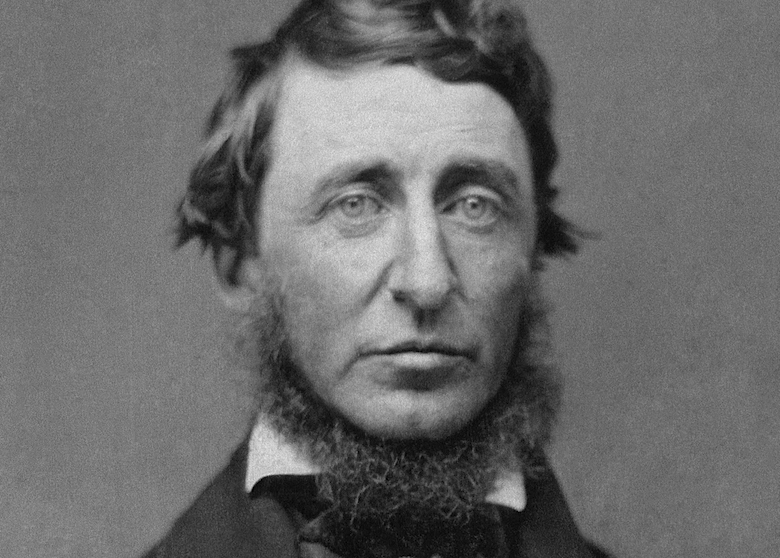One of America’s most famous writers, Henry David Thoreau (1817–1862) was born and raised in Concord, Massachusetts. As an essayist and poet, he is remembered for his philosophical and naturalist writings and his beliefs in Transcendentalism and civil disobedience. He was a dedicated abolitionist. His masterwork, Walden, continues to influence readers throughout the world.
Educated at the public school in Concord and at the private Concord Academy, Thoreau attended Harvard College where he studied Greek, Latin, and German, graduating in the top half of his class in 1837. Upon graduation, Thoreau worked at his family’s pencil factory and with his brother John, started a school in Concord. He also befriended Ralph Waldo Emerson, who became both a mentor and friend.
Emerson exposed Thoreau to Transcendentalism, a school of thought that emphasizes the value of empirical thinking and of spiritual matters over the physical world. Emerson influenced Thoreau’s desire to write. It was on land owned by Emerson that Thoreau built his cabin on the shore of Walden Pond.
Seeking a simpler life, Thoreau lived at Walden Pond from 1845 to 1847, writing and recording his physical observations. There he wrote his first book, A Week on the Concord and Merrimack Rivers, as a tribute to his late brother John. He also experimented with reversing the typical Yankee habit of working six days a week and resting one by devoting six days a week to Transcendental concerns and working one day a week. His nature study at Walden Pond would evolve into a lecture for the local townspeople who were curious about his time there and later become his second book.
Refusing to pay a poll tax while there, he spent a night in the Concord jail inspiring him to write one of his best-known and most influential essays, “Civil Disobedience” (also known as “Resistance to Civil Government”). Published in 1849, “Civil Disobedience” has influenced leaders of protest movements around the world including Dr. Martin Luther King, Jr., Mahatma Gandhi, and Nelson Mandela.
Thoreau wrote extensively and traveled widely throughout the region. His essay “A Walk to Wachusett” recounts an excursion he took in 1842 on foot with companion Richard Fuller, to the summit of Mount Wachusett in Princeton, Massachusetts. Published in the January 1843 issue of The Boston Miscellany, the trip through Acton, Stow, Bolton, Lancaster and Sterling, was one of the first of his excursions he took over many years including a return to Wachusett in October 1854 and trips to Maine, New Hampshire and Vermont. All are documented in his journals.
Heralded as “an original thinker” and “a man of simple tastes, hardy habits, and of preternatural powers of observation” in some of his obituaries, Thoreau died of tuberculosis in 1862 and is buried on Author’s Ridge in Sleepy Hollow Cemetery. His revolutionary writings on government and nature (he is considered the “father of environmentalism”) remain seminal to the shaping of an American identity.

